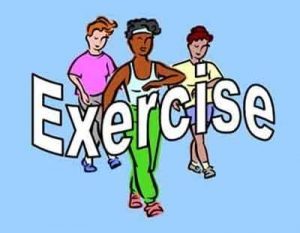- Home
- Editorial
- News
- Practice Guidelines
- Anesthesiology Guidelines
- Cancer Guidelines
- Cardiac Sciences Guidelines
- Critical Care Guidelines
- Dentistry Guidelines
- Dermatology Guidelines
- Diabetes and Endo Guidelines
- Diagnostics Guidelines
- ENT Guidelines
- Featured Practice Guidelines
- Gastroenterology Guidelines
- Geriatrics Guidelines
- Medicine Guidelines
- Nephrology Guidelines
- Neurosciences Guidelines
- Obs and Gynae Guidelines
- Ophthalmology Guidelines
- Orthopaedics Guidelines
- Paediatrics Guidelines
- Psychiatry Guidelines
- Pulmonology Guidelines
- Radiology Guidelines
- Surgery Guidelines
- Urology Guidelines
Exercise may help Heart Failure patients by turning off bad genes

Exercise may turn off bad genes in persons with Heart Failure, finds a study.
Exercise per se is good in cardiovascular diseases in general. But in heart failure exercise training is one of the most efficacious ways to improve physical performance and quality of life and to reduce morbidity and mortality. Going by findings of study exercise goes beyond tangible benefits to effect genetic changes in individuals with Heart Failure.
The purpose of this study was to examine the effects of exercise on Inflammation that contributes to heart failure by effecting changes in ASC methylation and activation of the IL-1 family cytokine IL-1β in persons with HF.
More than 6.5 million people in the United States are living with heart failure (HF). Scientists are looking for new targets for HF therapy that can help people lead better lives. One approach is finding how behaviour can turn on and off genes, by changing the epigenetics.
HF is an inflammatory disease, and higher inflammation leads to worse HF. In this pilot study, participants were randomly assigned either to a three-month walking exercise group (n=38) or a control group (n=16).
It was found that the exercise was related to increased mean per cent ASC methylation and decreased IL-1β and ASC mRNA gene expression in HF. Epigenetic regulation of ASC can be a biological mechanism by which exercise can promote better outcomes in HF. The investigators found that exercise training was able to turn off an inflammatory gene in persons with HF. By turning off this gene, there was less overall inflammation. Changing the epigenetics, or the process of turning genes on and off, maybe a natural way that exercise can lead to better outcomes in persons with heart failure.
The adaptor protein apoptosis-associated speck-like protein containing a caspase recruitment domain (ASC) is necessary for inflammasome activation of IL-1β. Lower ASC methylation is associated with worse outcomes in HF.
For detailed study log on 10.1249/MSS.0000000000001641

Disclaimer: This site is primarily intended for healthcare professionals. Any content/information on this website does not replace the advice of medical and/or health professionals and should not be construed as medical/diagnostic advice/endorsement or prescription. Use of this site is subject to our terms of use, privacy policy, advertisement policy. © 2020 Minerva Medical Treatment Pvt Ltd